
OR
Opinion


Shanker Man Singh
(The author is a former head of Nepse and SEZ and is currently affiliated with the private sector.)news@myrepublica.com
Cooperatives in Nepal offer a wide range of services, including savings and credit, insurance and non-financial services. Their achievements in the field of socio-economic development of the members indicate that they can grow as cooperative players in the development of Nepal.
The general meaning of cooperative refers to cooperation, coexistence, equal work or work done together. Cooperatives are the collective effort to raise their economic, social and cultural status by working together. Ancient cooperatives originated from Eastern philosophy. Cooperatives are a form of organization in which individuals voluntarily unite as human beings on the basis of equality for the promotion of their economic interests.
Cooperative is a movement. Being helpless against the exploitation of capitalism is not just a joint effort for all.
Since 1995, the United Nations International Cooperative Day has been celebrated jointly with the International Cooperative Day. Cooperatives around the world celebrate this day in different ways and each year the organizing organizations agree on a theme for the celebration.
Cooperative ("coop") or cooperative is an autonomous organization of individuals who voluntarily contribute to their mutual, social, economic, and cultural benefits. The idea of economic democracy has given rise to the cooperative people's movement worldwide.
International Cooperative Day 2021
Cooperatives are generally defined as community-based, and member-owned, managed, and controlled organizations. The first cooperative in Nepal was established in 1956. Due to the lack of basic understanding of cooperatives, the movement in Nepal was very weak until 1992. A major change in this area took place in 1992 when the Cooperatives Act 1992 was issued.
Cooperatives in Nepal offer a wide range of services, including savings and credit, insurance and non-financial services. Their achievements in the field of socio-economic development of the members indicate that they can grow as cooperative players in the development of Nepal. This proves that if the cooperatives operating in different villages are strengthened, they can make a significant contribution to improving financial access and the interests of the members.
Nepal has a long cultural tradition of informal community-based cooperatives, including savings and credit unions, known as "dhikuti", and the grain savings and labor exchange system, traditionally known as "dharma bhakiri". Similarly, a cursory review of the history of the Guthi provided a forum for the smooth running of various socio-cultural practices. Many of these traditional support systems are still in operation in rural Nepal.
The first Cooperatives Act was enacted by the government in 1960, which after the Agricultural Cooperatives Act (Common Cooperatives) turned the savings and credit cooperative capital into a cooperative bank in 1963, and in 1968 it was transformed into the Agriculture Development Bank (ADBN). And in 1975, the Cooperatives Act was amended again.
The Cooperatives Act was amended for the third time to give the government more control. By this time, the savings and debt movement had spread across the country and the need for a top coordination body was evident.
The Nepali cooperative movement has seen many socio-economic as well as political changes. In 2008, Nepal was declared the Federal Democratic Republic of Nepal. In 2015, the Constituent Assembly successfully promulgated Nepal's new constitution, which recognized the cooperative sector as one of the three pillars of the national economy.
In 2018 and 2019, new Cooperatives Act and rules were implemented. The new constitution has decentralized and empowered local and provincial governments to pass laws and do what they need to do. Provincial governments and local government bodies can now declare and enforce their own cooperative laws.
According to the Department of Cooperatives, the main types of cooperatives operating in Nepal are savings and credit, multipurpose, dairy, agriculture, fruits and vegetables, beekeeping, tea, coffee, consumer, science and technology, and energy.
Today, cooperatives around the world are seen as increasingly level players, effectively organizing farmers and small businesses, providing much-needed financial support, and empowering the poor to create jobs and generate income-generating activities. It is therefore not surprising that the Government of Nepal has embraced the public and private sectors as well as cooperatives, as the three main pillars of the economy.
Cooperatives are present in various sectors including agriculture, finance and savings, consumer, multi-purpose, electricity and health.
Last year, we saw how the cooperative model is working for the benefit of the people and what the cooperative movement points to. We will actually rebuild better together and be confident that the cooperative movement will help many communities in the epidemic world to see more stories in health, agriculture, manufacturing, retail, finance, housing, employment, education, social services and other areas where cooperatives are found, with over one billion cooperative members worldwide proving that no one faces a crisis.
The sector also provides direct employment to more than 50,000 people while indirectly providing additional 100,000 employment opportunities in various sectors in Nepal. Many cooperatives suffer from unbearable investment in risky sectors - many cooperatives lack professional management and adequate knowledge, principles and practices of cooperatives.
People are more attracted to cooperatives because the returns are higher and they go to the customer's house and provide a higher level of service. The interest rate is so high that it is difficult for you to get a return if you borrow and invest in other projects. It charges interest as well as various types of fees on the loan (loan fee, membership fee, call fee, organization development fee, appraisal fee,and other fees).
Problems in cooperatives
The development of cooperatives in Nepal is not satisfactory. Reasons: lack of clarity about the mission, national outlook and adequate monitoring of the government in terms of cooperative movement. The lack of managerial skills and professionalism, lack of planning and implementation working capital, proper research, expansion of cooperative movement and lack of education credit are also some of the problems.
A cooperative society can perform its work only after registering under the Cooperatives Act.
Characteristics of cooperatives
Cooperatives are responsible for financial development as well as social development and environmental protection. The founders, directors and employees of the organization are local people. The organization prepares various policy rules along with the regulations and the activities of the organization are conducted on the same basis. A certain percentage of the amount in the organization is kept in the organization with liquidity and the remaining amount is loaned to its members.
Emphasis on merger of cooperatives
The government has a plan to make cashless transactions through cooperatives. The government is going to encourage mergers between cooperatives. This merger seems to have been emphasized with the aim of increasing the quality by reducing the number of cooperatives. Some cooperatives have already merged. In this case, there is a possibility of practical and policy problems when the organization is merged.
There are about 34,000 cooperatives in Nepal at present. Of them, about 14,000 are savings and credit cooperatives. The rest are multi-purpose and regional cooperatives. The majority of cooperatives are involved in agricultural production and processing. There are those who believe that savings and credit cooperatives operating in urban areas have acted against the values and norms of cooperatives. Therefore, the attitude toward the overall cooperative sector is not very good.
Cooperatives have been included in the periodical plan and annual budget with importance. After long efforts of the National Cooperative Development Board, cooperative bodies and stakeholders, the Government of Nepal issued the National Cooperative Policy, 2069 BS.
Accordingly, the National Cooperative Development Board, National Cooperative Union, National Cooperative Bank and Central Agricultural Cooperative Union have become members of the International Federation of Cooperatives, the umbrella organization of cooperatives in the world.
(The author is a former CEO of Nepse and SEZ.)
You May Like This

Six individuals arrested for stealing Rs 3 million from 11 cooperatives
KATHMANDU, April 22: A group of six individuals has been apprehended for their alleged involvement in stealing from cooperatives in... Read More...
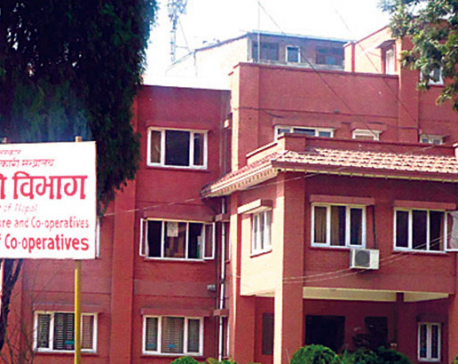
DoC bars cooperatives from issuing loan to realty businesses
KATHMANDU, August 17: The Department of Cooperatives (DoC) has barred cooperatives from issuing loans in real estate businesses, citing soaring liquidity... Read More...
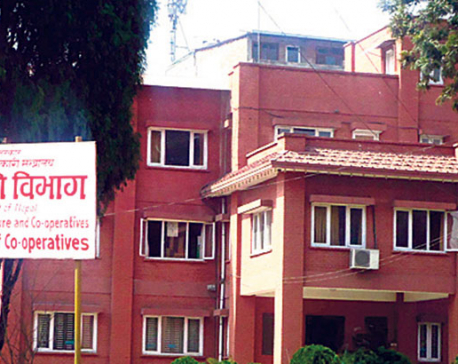
Ceiling for interest rate of credits of cooperatives fixed at 16%
KATHMANDU, Aug 3: The government has capped the lending rate for cooperatives at 16%. ... Read More...




Just In
- NEPSE loses 3.24 points, while daily turnover inclines to Rs 2.36 billion
- Pak Embassy awards scholarships to 180 Nepali students
- President Paudel approves mobilization of army personnel for by-elections security
- Bhajang and Ilam by-elections: 69 polling stations classified as ‘highly sensitive’
- Karnali CM Kandel secures vote of confidence
- National Youth Scientists Conference to be organized in Surkhet
- Rautahat traders call for extended night market hours amid summer heat
- Resignation of JSP minister rejected in Lumbini province












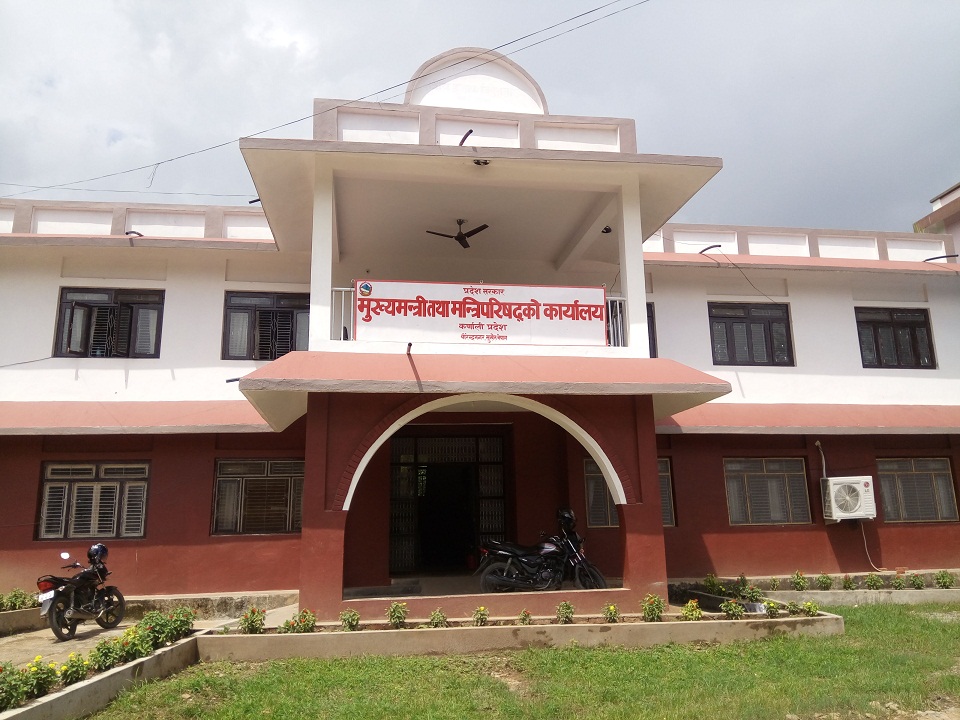
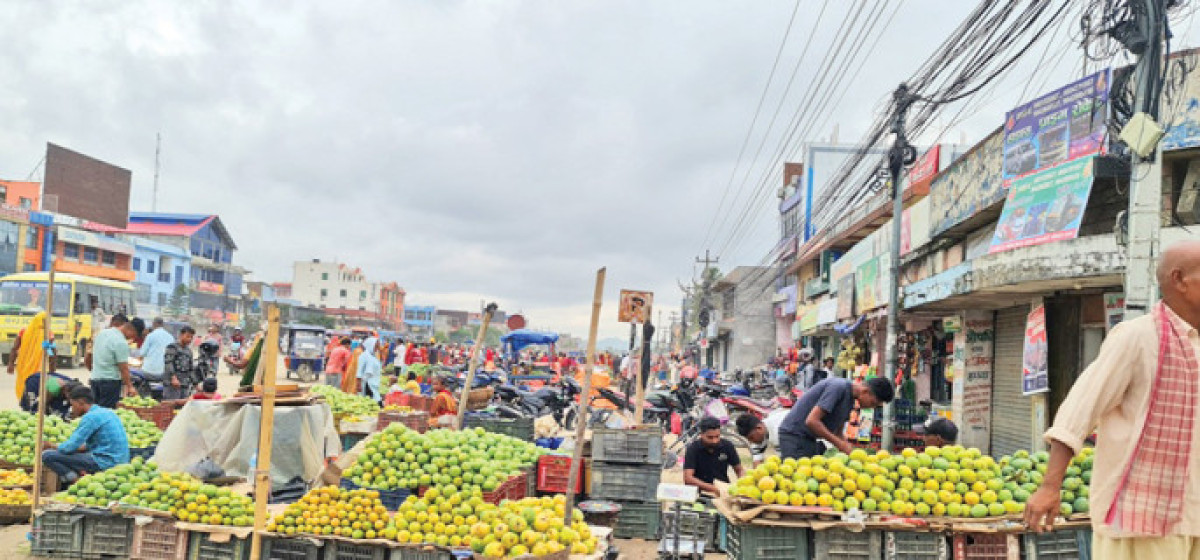
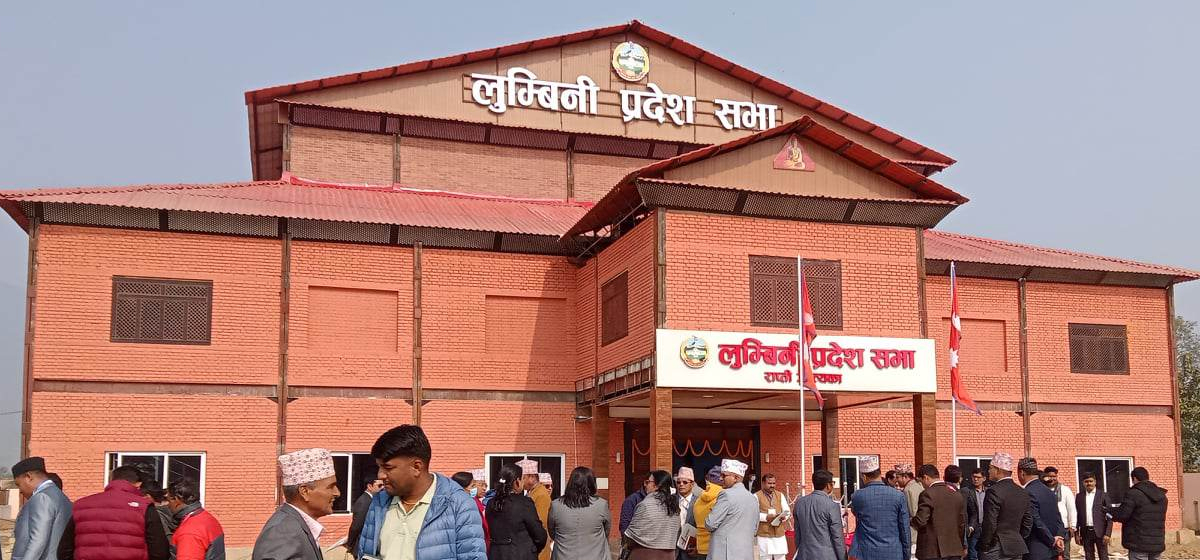
Leave A Comment